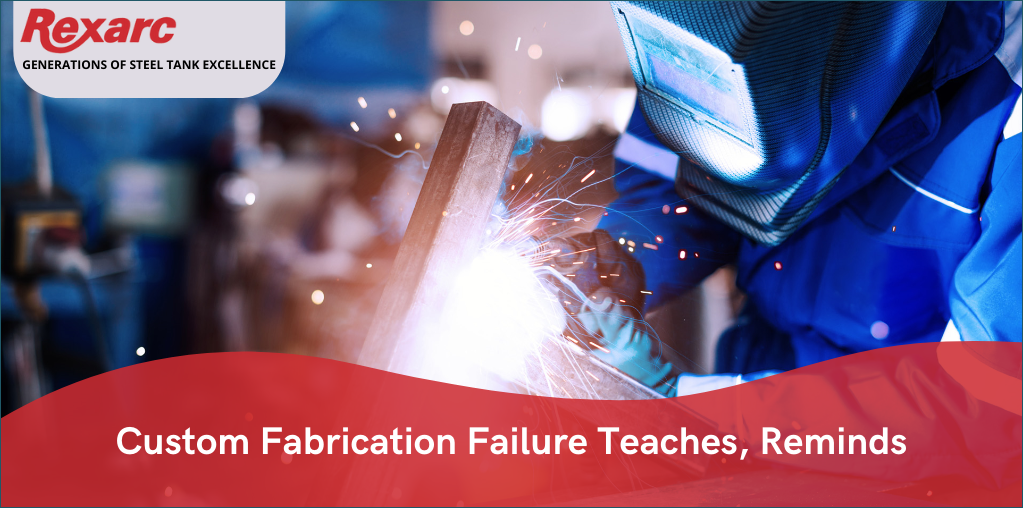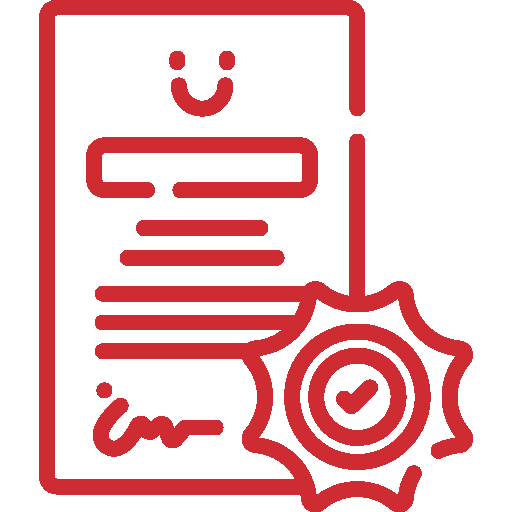Rexarc is currently open from 7:30 AM – 4:00 PM EST, Monday – Friday. Read More
Rexarc is currently open from 7:30 AM – 4:00 PM EST, Monday – Friday. Read More

We’ve been in business for nearly a century, specializing in steel tank fabrication and adding product lines, like pressure vessels and boiler deaerator systems. We take great pride in building products that exceed customer expectations.
Whether you’ve been in business 20 years or are just starting a new product line, there can be that one project where the wheels fall off — one small problem leads to a whole series of problems — and suddenly you find yourself changing schedules and apologizing to the customer. The pandemic, its resulting supply chain issues, and higher employee turnover rates add a whole new set of challenges to each job.
It happens.
Instead of hiding this failed project, we decided to share what we learned and re-learned as a reminder to everyone in our industry:
We face many challenges right now. If we can learn from one another, we’ll emerge a stronger industry.
Birds of a Feather
There’s a reason why the rest of that cliché is “flock together.” When you share a set of principles, cultural norms and expectations, collaborative problem-solving tends to happen naturally. Just as two people who can relate to each other tend to work together well, companies share the same energy.
How do you know you share key philosophies? Onboarding is the ideal time to check for work culture alignment with both customers and suppliers. When bringing on a new customer or supplier, we have a conversation. From there, we decide if the partnership and project are a fit for us. We offer a list of questions to ask potential vendors on choosing a pressure vessel partner.
Sometimes, onboarding is compressed or even skipped due to a rush project. And the global pandemic is forcing many to work with new suppliers and evolving workforces, further enhancing project anxiety. Because we feel that additional pressure, we tend to abandon our normal practices and habits.
Challenging times are not the times to sacrifice strong partnerships. Remaining dedicated to customer satisfaction will carry us through these challenges.
Offer Solutions, Not Problems
Even when the challenge is outside our control — shipping delays or unavailable materials — we must keep our customers informed and aware so they can plan for delivery of their product. These are difficult conversations, no doubt. But they also build trust in the relationship.
When a production problem arises, the best option is to always present the solution to the customer. It’s a three-step conversation:
And it is best to have this conversation as close to problem discovery as possible. When you propose solutions, you demonstrate critical thinking and you add value to the relationship.
Internal Communications
It is not enough to communicate with the customer, you also must work with the project team. This may seem like a given but with focus on keeping customers satisfied, team communication may get overlooked.
Share the customer’s expectations for the project, as well as what the customer will need to do once the product is delivered. When you complete the project, the customer’s work is just beginning. How will delays affect the customer and their subsequent timeline? Share that with the team so they understand the impact of their work.
Remember, that communication is a two-way street. In talking through the project, listen to team member input and feedback. They may have concerns, but they also may see opportunities to improve production time or product performance.
And you’ll need your team’s support in order to address the corrective actions. When you listen and include your team members as valuable contributors rather than doers, your results will improve because you will have active participants rather than people who are trying to be “fixed”.
Manage Expectations
Be upfront with your customers about challenges at the beginning of any project. Right now, prices on our materials are only guaranteed for 24 hours. Shipping dates can change hourly. Team members are all here today, but tomorrow may look quite different. Right now, there is a lot up in the air. So managing expectations is especially difficult. Do your best. Continually manage expectations.
To help manage those expectations, ask your customer lots of questions. Ask them about what needs to happen once they receive the project from you. Why is that delivery date necessary? Is there flexibility in those plans?
Putting the Wheels Back On
Because of so many challenges, many of us are moving fast and taking opportunities where we can get them. That’s understandable. Yet, that situation is conducive to projects where everything unravels.
In the end, the best way to move forward is to return to your focus – doing what you do best using the practices that elevate those core competencies. It happens to all of us at some point. If we don’t learn from it, then it will continue to happen.
We continue to produce boiler deaerator systems and pressure vessels. We focus on leveraging our continuous improvement culture to improve every day. We have been here almost a century because we learn from each project. We will be here another century because we learn from each project.

We are a one stop shop from custom vessel production to full skidding, plumbing and instrumentation.

We stand by our processes and communicate with you on your project status as much or as little as you would like.

We continually reinvest in our people, business, and equipment technology to ship quality products on time.
